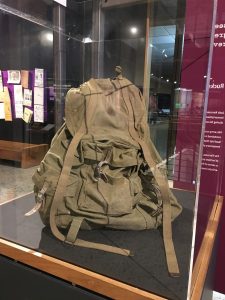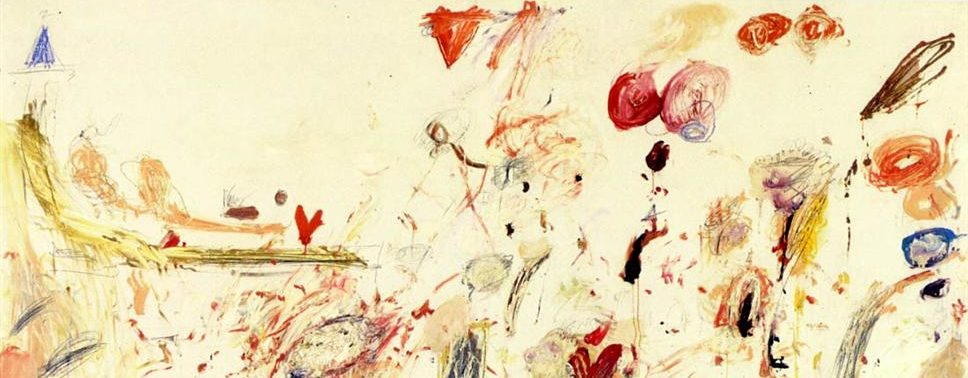Although I was captivated by many cases and installations within the Beats Exhibit, I was particularly drawn to the cases centered on Jack Kerouac, and his literary inspiration. I was immediately struck by the lone, ragged backpack, or “rucksack,” sitting staunchly in a clear case. While subtle, this military rucksack, for Kerouac, came to symbolize the greater theme of constant movement; in turn, it became a symbol for one of his principal literary inspirations: travel. In addition to the prominent theme of travel, another key feature the case displays, in a more nuanced light, is the pervasive value of community in Kerouac’s career and life. While the rucksack was just a means permitting Kerouac to constantly be on the road, or in the service, it more significantly permitted him to be apart of different communities, and friendships, along the way. To this end, I was captivated by the ability of a single inanimate object to convey deep, and substantial, themes intersecting Kerouac’s constantly moving career and life.
This case, and the way it focuses on “spontaneous prose” and movement, relates to our study in class of the fragments and collage unit. In essence, just as Kerouac drifted through many towns, even countries, his prose mirrored such spontaneity and unconventionality, uniquely defying form. Kerouac’s work can be looked on as a collage of experiences transcending his travels, and the communities he passed through as he went. In addition, when we studied many of the poems that defied conventional form, they shared the same reverence for “white space,” or leaving space open in the body of the poem to permit the reader to breathe, and subsequently reflect. Similarly, Kerouac believed the open road, one of his greatest literary inspirations, to symbolize freedom, an open future, and endless possibility. This reverence for the white space or “possibility,” furthermore, is mimicked in his writings, and in the poets we studied in class. Moreover, I will use this exhibit to help me structure my own virtual exhibit for my final project by incorporating short quotes, images, and themes/ inspirations that have greatly impacted the poet, as is done in Kerouac’s exhibit.
Some of the questions this case raises for me are as follows:
- Besides “soul-searching” and an affinity for the “open road,” were there other, more pressing, reasons that brought Kerouac to the road, or a life of travel, and that subsequently inspired his writings?
- Could Kerouac’s travels have been inspired in some way by the prominent counterculture of the time? For example, did he travel to escape? To rebel?
To satisfy my curiosity regarding Kerouac’s purpose on the road, and his search for meaning through travels, I would research through his novels and other writings, and look for significant clues into his reasons for travel. In addition, I would look for quotes potentially by family members, or even friends, that might lend insight into the reason why traveling was such a prominent calling in his life, and inspiration for his writing.
